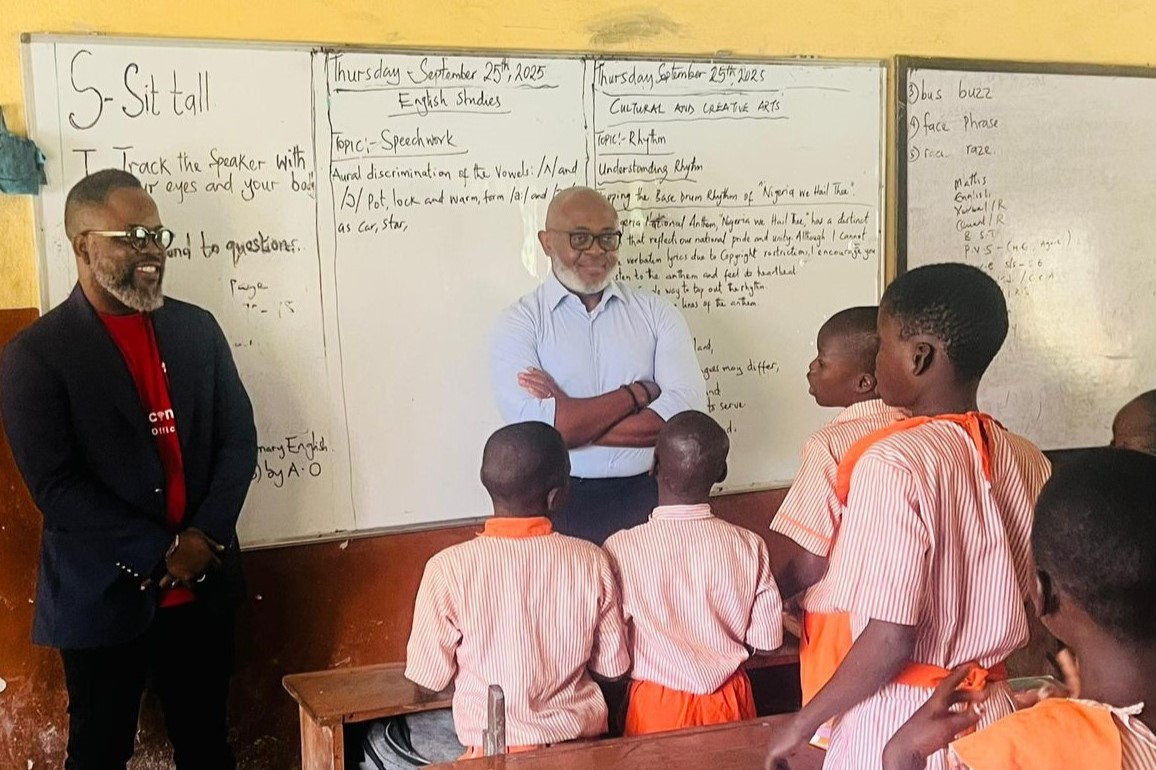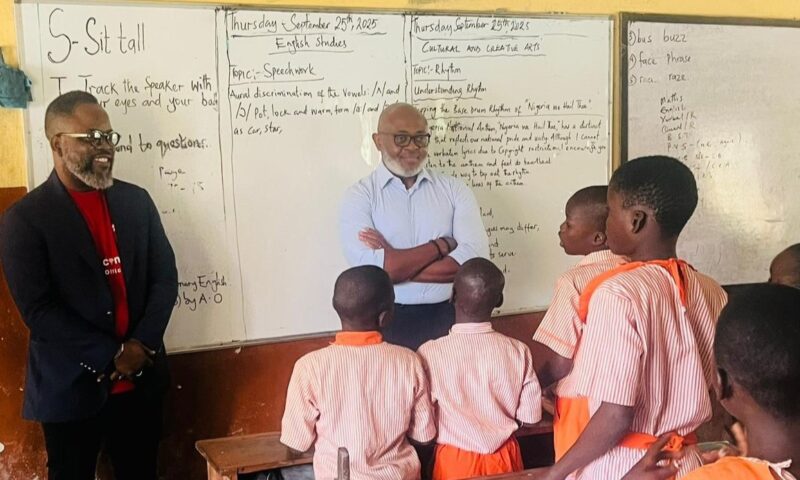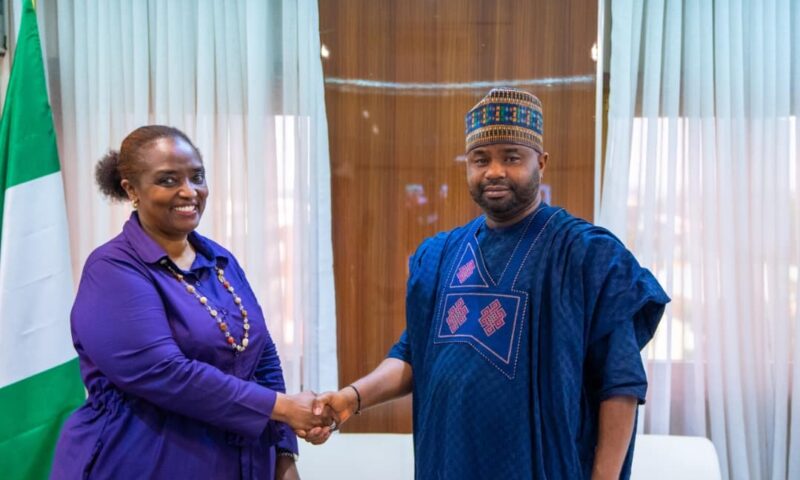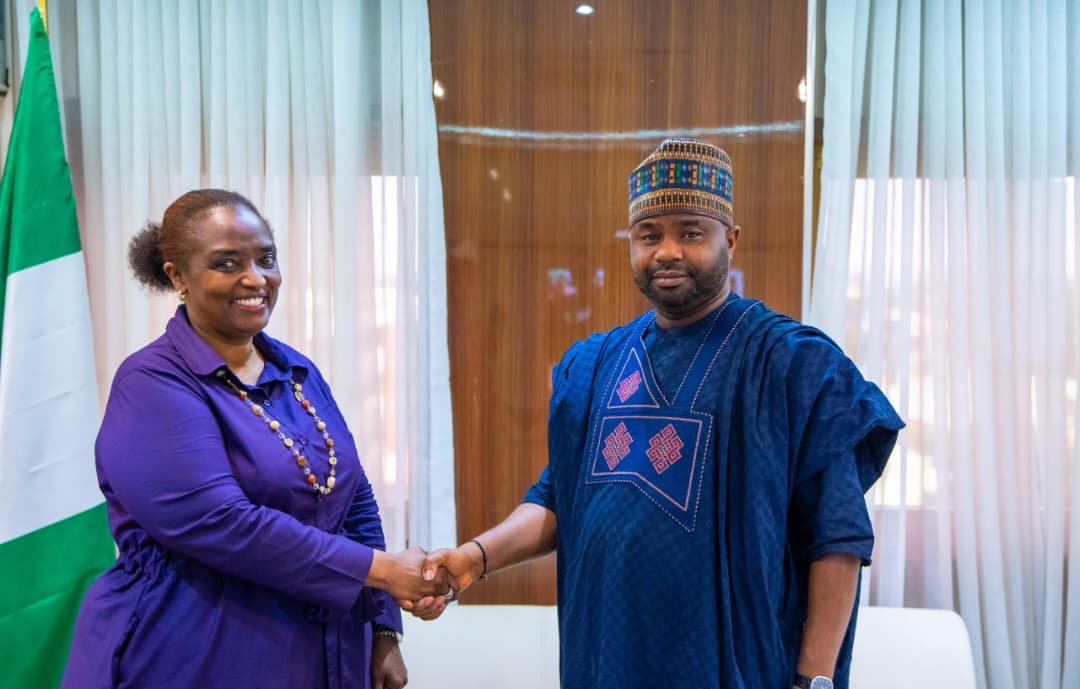Democratizing Education – Airtel’s Oremeji Example
 Fourteen years ago, as Head of Corporate Communications & CSR at Airtel Nigeria, my team and I visited the famous Tolu Complex in Ajegunle, Lagos – a cluster of over 20 public schools serving thousands of children in one of Nigeria’s most underserved communities.
Fourteen years ago, as Head of Corporate Communications & CSR at Airtel Nigeria, my team and I visited the famous Tolu Complex in Ajegunle, Lagos – a cluster of over 20 public schools serving thousands of children in one of Nigeria’s most underserved communities.What we saw that day changed us forever. Children between 6 and 12 sat on the bare ground under a tree, their teacher using the cracked wall of a collapsed classroom as a blackboard. Some of us shed tears.
Right there, we made a decision: we would adopt and rebuild Oremeji Primary School 2.
From Collapse to Catalyst
In just six months – cutting through layers of government bureaucracy, battling security challenges, and even replacing stolen ceiling fans on commissioning day! – we delivered a modern school building:
•Six fully furnished classrooms with whiteboards
•An office for the head teacher
•Toilets for boys, girls, and staff
•A borehole with water reservoir
•Power supply
We didn’t stop there. We gave every child uniforms, shoes, books, and school bags. Later, through our Airtel Employee Volunteer Scheme, staff donated a mini-library, taught classes, and inspired students with career talks. An ICT lab soon followed, with computers and access to free, government-approved learning materials.
The Ripple Effect
Enrollment rose. Academic performance improved. Teachers began winning laurels. Most importantly, the small spark ignited bigger change: the then First Lady of Lagos, Mrs. Folasade Fashola, apparently persuaded her husband to rehabilitate other contiguous schools in the complex. Over time, the Lagos State Government transformed the entire landscape with massive new school blocks.
When I revisited Oremeji Primary School 2 last week, during a working tour of Nigeria, I was overwhelmed. Oremeji – once the pride of the complex – now looked modest, surrounded by gigantic, ultramodern buildings. And that’s exactly the point.
A Lesson in Development
What started as one bold corporate initiative grew into sustainable, government-backed transformation. Development truly begets development. No amount of darkness can cover the light of a single candle, it’s said.
That’s the power of partnerships, purpose, and persistence. The Airtel Adopt a School Program embodies all the aforementioned attributes.
And that’s why democratizing access to education must remain a collective mission – because the children of Ajegunle, and millions like them, are our future leaders.
It’s truly heartwarming that the major item on the agenda during my visit to Nigeria was a joint Media Briefing by Airtel Africa plc and Airtel Africa Foundation, where it was announced, amongst other things, that the Foundation, which is sponsored by Airtel, will adopt 100 schools across its 14 markets in Africa (10 in Nigeria) over the next 12 months, for a start.
By Emeka Oparah , the Vice President, Corporate Communications & CSR, Airtel Africa plc.





